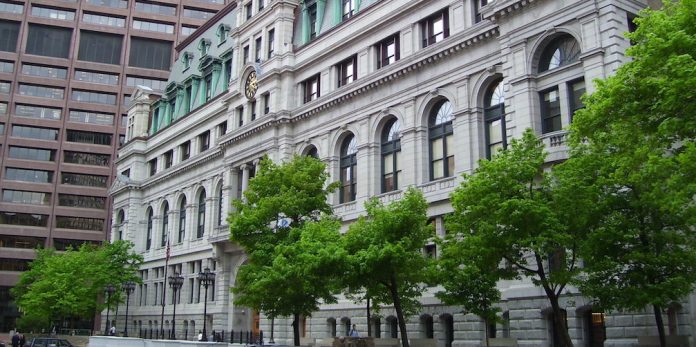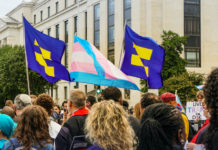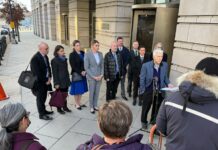
[This column appears in the July/August 2021 issue of Boston Spirit magazine.]
A fundamental premise of our criminal justice system is that defendants have a right to a fair trial, including the right to be heard by a jury of their peers. Instances of discrimination in jury selection deprive defendants of that right. On May 7, the Massachusetts Supreme Judicial Court (SJC) heard arguments in a case, Commonwealth v. Carter, with significant implications for how courts approach discrimination in jury selection, including anti-LGBTQ and race discrimination.
During jury selection, attorneys are permitted to reject individuals from the jury pool without giving a reason. However, if the opposing counsel objects that a juror was struck because of their membership in a protected class, the trial judge has a responsibility to examine the reason for the strike. At Antwan Carter’s 2010 trial, the court failed to examine the prosecution’s peremptory strikes of Black and LGBTQ jurors despite repeated objections from defense counsel.
GLAD, Black and Pink MA, the Charles Hamilton Houston Institute for Race and Justice, and Lambda Legal filed a friend-of-the-court brief at the SJC supporting defendant-appellant Carter’s call for reversal of his conviction, on the basis of improper discrimination in jury selection at his trial. The brief argues that the trial court was wrong to say peremptory jury strikes based on the presumed sexual orientation of jurors are permissible under both the Massachusetts and Federal constitutions and to rely on the inclusion of previously seated jurors of color to justify the prosecution’s subsequent strikes of four other Black jurors.
Black and LGBTQ people are disproportionately impacted by the criminal legal system, and instilling fairness in that system is an LGBTQ justice issue. A fair trial depends on a fair jury. If people are excluded because they are in a marginalized group, the constitutional promise of an impartial jury of one’s peers is illusory.
Jury service is also a pillar of civic participation. As past civil rights lawyers and activists who fought against jury discrimination on the basis of race, sex and other characteristics long argued, the right to serve on a jury—much like voting—is fundamental to understanding ourselves as true citizens in a democracy. Limiting the right to be a juror because of defining aspects of our personhood is a form of disenfranchisement.
Currently only a handful of states expressly prohibit discrimination against LGBTQ jurors by state law, and Massachusetts is not yet among them. Two bills currently pending before Congress, the Equality Act and the Jury Non-Discrimination Act, would make clear that such discrimination is expressly prohibited under federal law and in federal court proceedings. But, ultimately, trial court judges have the power and responsibility to ensure our legal system works fairly for everyone who comes to court, voluntarily or involuntarily. To make real the promise of equality before the law we must ensure that people have a jury of their peers and that means prohibiting discrimination in jury service, addressing structurally flawed jury selection processes and stopping instances of discrimination in the moment they occur. The Massachusetts Supreme Judicial Court has the opportunity in Commonwealth v. Carter to both affirm the fundamental nondiscrimination principles embedded in our state and federal constitutions and to ensure more robust application of those principles in our criminal legal system. [x]
Visit glad.org/jury-service to read the brief and for a deeper dive on the history and importance of fighting discrimination in jury service and selection.








